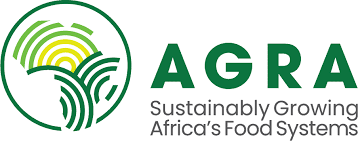In an address at the United Nations Food Systems Summit 2023, Agnes Kalibata, the president of the AGRA, highlighted the critical need for substantial investment in transforming Africa’s food systems. Kalibata’s speech underscored the dire consequences of underinvestment in this sector, which continues to plague African nations with escalating hunger and poverty.
Kalibata pointed out a stark disparity in the global financial landscape, noting that African countries face a punishing 3 to 5% higher interest rate on credit compared to other nations. This gap significantly hinders their ability to access crucial funding. “It’s just unacceptable,” she emphasized, articulating the frustration felt by many African nations grappling with these financial barriers.
The AGRA president elaborated on the multiple challenges faced by African countries, chiefly stemming from inadequate funding. This lack of investment, she warned, is stalling progress in transforming food systems – a key element in combating hunger and ensuring sustainable food security. The ongoing scenario leads to a vicious cycle of increased hunger among the populace.
Kalibata’s call to action was clear: To reverse this trend, there must be a concerted effort to invest in overhauling the food system. Such investments would empower local communities, enabling them to become self-sufficient in food production and reducing their dependence on uncertain global food chains.
The United Nations Food Systems Summit (UNFSS) 2023 serves as a pivotal global forum for discussing and devising strategies to transform food systems worldwide. This year, a significant focus was placed on African food systems, considering the unique challenges and opportunities they present.
Key Challenges in African Food Systems:
- Climate Change and Environmental Impact: African food systems are significantly affected by climate change. Droughts, floods, and changing weather patterns disrupt agricultural productivity. Additionally, there’s a growing need to balance food production with environmental conservation.
- Economic Disparities and Access to Credit: African countries often face economic hurdles, including limited access to credit and higher interest rates compared to developed nations. This financial gap hinders the ability to invest in modernizing agriculture and food production.
- Food Security and Nutrition: A major concern in Africa is ensuring food security and addressing nutritional deficiencies. Many regions face challenges of undernutrition, while others grapple with rising cases of obesity.
- Agricultural Practices and Infrastructure: There is a need to improve agricultural practices, including the adoption of sustainable and efficient farming techniques. Moreover, infrastructure related to storage, transportation, and market access requires significant enhancement.
UNFSS 2023 Objectives for African Food Systems:
- Promoting Sustainable Practices: The summit aims to encourage sustainable agricultural practices that are environmentally friendly and economically viable.
- Financial Reforms and Support: A key objective is to address the financial challenges, advocating for better credit access and fair interest rates for African countries.
- Enhancing Food Security and Nutritional Quality: The summit focuses on strategies to improve food security and the nutritional quality of food available to the African population.
- Empowering Local Communities: There is an emphasis on empowering local communities, particularly smallholder farmers, to improve food self-sufficiency.
- Technology and Innovation: Integrating technology and innovation in agriculture, including the use of digital tools, improved seeds, and efficient water management systems.
